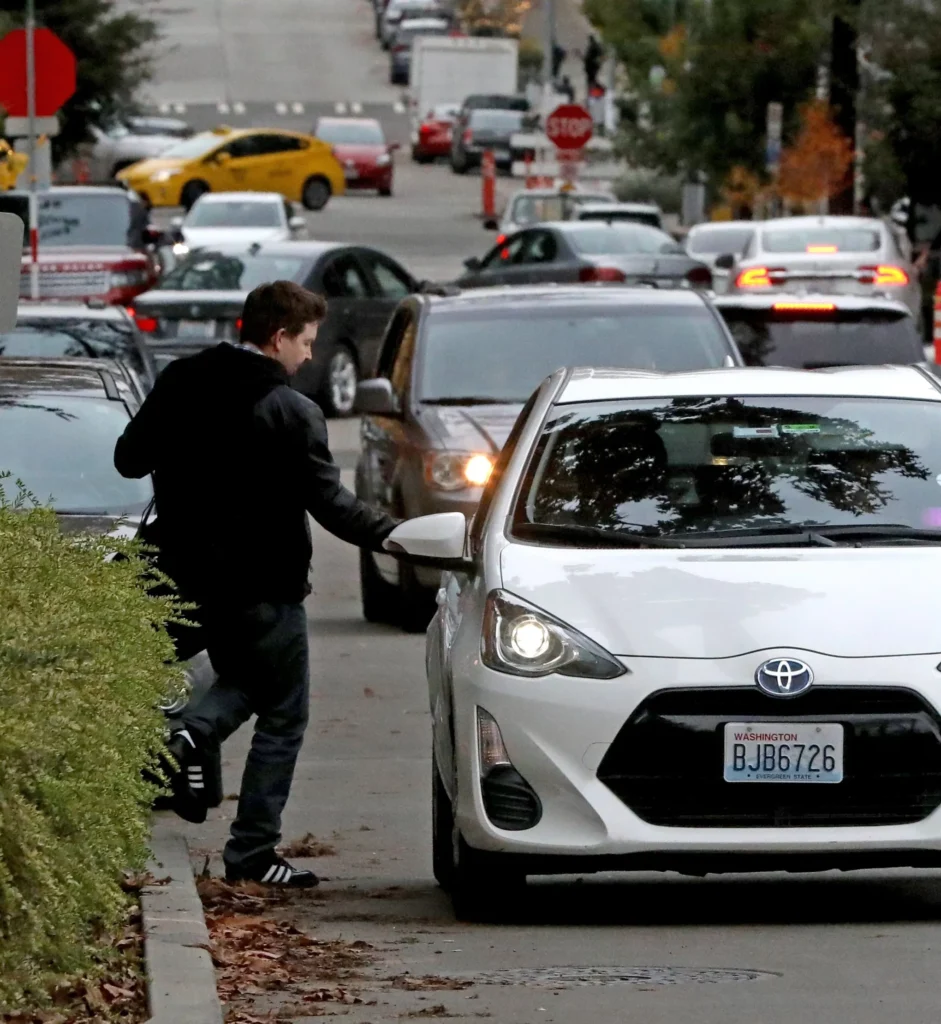Why Ride-Shares Fail for Special Occasions in Seattle (And What to Do Instead)
There’s a specific kind of panic that hits when the app says, “Your driver has canceled,” and you were ready to go to an event in seattle. It’s not a minor inconvenience when you’re wearing a tux or holding a bouquet. It’s not just annoying when your friends are waiting in heels by the curb. It’s a gut punch, because now, you’re off-schedule, out of options, and fully aware that your night just shifted.
That’s what happens when ride-share services, built on convenience, try to substitute for reliability. And in cities like Seattle, that gamble rarely pays off. Ride-shares work on demand, but special events demand precision. There’s a difference, and that difference shows up the moment you need a car that won’t leave you stranded before prom or circling Pike Place when you’re supposed to be walking into a gala. This isn’t just about transportation. It’s about how one delay ruins the timing of an entire event. It’s about what happens when your transportation app doesn’t account for Seahawks game traffic, or when your driver drops you off three blocks from the entrance because of construction near the Climate Pledge Arena. It’s about trust, and whether you’re putting that trust in an algorithm or in a system designed for moments that can’t be rescheduled.

What Makes Special Occasion Transportation Different?
Why Timing, Appearance, and Reliability Matter More
In events like weddings, proms, or ticketed concerts, the schedule is sacred. The photographer is booked by the hour. The DJ starts at a specific time. The guests expect an entrance, not a text saying, “Our ride’s stuck in Belltown.” Ride-shares can’t guarantee punctuality because their system doesn’t prioritize it. A nearby driver may accept your request, but they’re not required to know your route, understand its significance, or plan around it. If traffic hits, which, let’s be honest, in Seattle it does, the ETA shifts, the mood dips, and everything downstream takes a hit.
Appearance matters too. Not because of vanity, but because of expectations. A late-model Toyota Corolla with an air freshener hanging from the mirror might be fine for a coffee run. But it breaks the mood when it pulls up outside the Edgewater Hotel on your wedding day. And then there’s reliability, or the lack of it. If a driver cancels, no one is obligated to make it right. There’s no dispatch. No backup. No one is even aware of what’s at stake.
Seattle’s Traffic, Events, and Layout Complicate Everything
Seattle doesn’t forgive poor planning. Try navigating Capitol Hill at 7 PM on a Friday. Try finding legal curb space during a Kraken game. Try asking a ride-share driver to wait outside the Seattle Asian Art Museum for fifteen minutes while your prom photos wrap up. Most ride-share drivers don’t know the city’s event flow. They aren’t trained on venue logistics, drop-off protocols, or local timing dynamics. They follow GPS, even when GPS doesn’t account for alley-only access, blocked roads, or temporary barricades near South Lake Union events.
And the city itself is a maze. Hills, one-way streets, short blocks, ferry crossings, and unpredictable pedestrian volume make timing an art, not just navigation. Limo drivers in Seattle know this because they’ve adapted to it. Ride-share drivers? They’re guessing. This is what makes special event transportation in Seattle an ecosystem of its own. It’s not about the car, it’s about who’s behind the wheel, what they understand, and whether their job is to show up on time or just show up when it’s profitable.
The Ride-Share Reality Check — What Often Goes Wrong
Relying on a ride-share for a milestone event is like flipping a coin while wearing a watch. You’ve got a schedule in one hand and randomness in the other.
People expect Uber or Lyft to “just work.” That’s fine when you’re heading home from Capitol Hill on a Wednesday night. But for an anniversary dinner at Canlis, a graduation ceremony at the University of Washington, or a formal gala in Queen Anne, the cracks start to show. Because in those moments, you’re not asking for a ride — you’re asking for structure, and these platforms aren’t built for it.
Delays, Cancellations, and Algorithm Roulette
Here’s how it usually plays out: you request a car, and the app shows a five-minute ETA. But the driver is circling Madison Valley, trying to make another drop-off. Suddenly, it’s ten minutes. Then they cancel. Now, the app assigns someone coming from West Seattle, and you’re standing on a curb, sweating under formalwear.
This happens more often than people think, especially during high-demand weekends or near popular venues like The Crocodile, Fremont Abbey, or McCaw Hall. When demand spikes, ride-share platforms throttle driver availability, reroute trips, or inflate rates using surge logic. The system is dynamic, your event isn’t.
And when your ride disappears, there’s no one to call. No control desk. No real-time support. You’re at the mercy of app mechanics, not service professionals.
Mismatched Vehicles and Event-Inappropriate Rides
Group Breakups, Split Arrivals, and Communication Nightmares
One of the most overlooked issues with ride-shares is how badly they handle multi-person coordination. When you’re managing a group, a bridal party, a set of prom dates, or out-of-town clients, you need everyone to arrive together. That’s not just for photos or entrance drama. It’s about pacing, timing, and keeping the evening in rhythm.
Ride-share platforms don’t care if your group gets split up between four different vehicles, or if half the party arrives twenty minutes early while the other half gets stuck behind Pike Street detours. There’s no unified logistics. No shared timing. Just individual cars doing their own thing. That lack of coordination can throw off entrances, delay catering schedules, and turn otherwise smooth plans into fragmented chaos. And if one driver takes a wrong turn or gets lost in the Mercer Mess? Good luck syncing up again before the ceremony starts.
Real Seattle Use Cases Where Ride-Shares Fail
It’s not theory, it’s patterns. Over and over, people in Seattle put their faith in ride-share apps for meaningful events, and the result is usually some form of chaos. One couple booked an Uber to their daughter’s graduation at Benaroya Hall. The car showed up 15 minutes late, smelled like fast food, and the driver didn’t know where the loading area was.
By the time they were dropped off two blocks away due to closed lanes, the ceremony had already started. Another story came from a group headed to the prom at the Seattle Aquarium. They split into two ride-shares, only to find that one vehicle went the wrong way on Alaskan Way and arrived nearly half an hour late. Their entrance, their photos, and the flow of the evening were completely off. These things don’t just happen during high-traffic nights.
They happen because the system was never designed for sequencing, coordination, or emotional weight. That’s where private chauffeur services, the kind that operate on schedule, with dedicated planning, backup contingencies, and locally trained drivers, quietly fill the gap.
A private car isn’t just a ride; it’s the glue holding the event together when time, people, and pressure intersect. And in a city that regularly sees gridlock around T-Mobile Park, Mercer Street, or the International District, relying on a company that actually plans for congestion and venue-specific timing makes all the difference. When you’re the one responsible for making the evening go right, betting on chance isn’t an option; control is the only currency that works

Why Event Limo Services in Seattle Are the Smarter Choice
Scheduled Service, Not Guesswork
When you reserve a limo in Seattle, you’re not hoping someone’s nearby, you’re securing a specific vehicle, with a confirmed route, a pre-set time, and a trained driver who understands the stakes. That matters whether you’re arriving at The Fremont Foundry, hosting clients in South Lake Union, or heading from SeaTac to a downtown event.
Limousine reservations run on fixed timelines. You choose the vehicle. You select the pickup location. You confirm the drop-off. That clarity eliminates surprises and ensures the transportation fits seamlessly into the larger event schedule.
Flat Rates That Respect Your Budget — and Your Sanity
Vehicles Made for Moments, Not Errands
The vehicle itself makes a difference. You’re not stepping into a random sedan or hoping your “luxury” car is clean enough. You’re choosing from a curated lineup — maybe a luxury SUV for an anniversary dinner, a vintage Rolls-Royce for wedding portraits, or a Sprinter van for a small team headed to an awards ceremony. Each ride is detailed, stocked, and prepped for the occasion. Not just to look good, but to offer comfort that holds up under pressure.
Extra legroom, smooth suspension, interior lighting, sound control, privacy dividers — all the things that make time in transit feel like part of the event, not just dead air between stops. And these rides don’t show up lost. Seattle limo drivers are trained on event venues, familiar with parking restrictions, and looped into event timelines. They don’t just show up — they support the night.
Conclusion
FAQs
Isn’t a limo way more expensive than Uber?
Not always. Once you split the cost among 4–8 passengers and factor in surge pricing, limos are often the better value, especially for special events.
Can I book a limo last minute like I do a ride-share?
Many companies, including Seattle Exotic Limousine Services, offer same-day bookings if vehicles are available. But for big nights, it’s best to reserve early.
Are limos allowed to drop off at places like Climate Pledge Arena or SeaTac?
Yes. Licensed limos have access to designated drop-off zones that ride-shares may be restricted from using.
What if I only need the limo for 1 hour?
Many companies offer hourly limo service packages. It’s perfect for quick events or simple roundtrips.
Is it awkward to ride a limo for just a small event?
Not at all. Limos aren’t just for celebrities. They’re ideal for birthdays, anniversaries, or even a fancy night out with friends.
